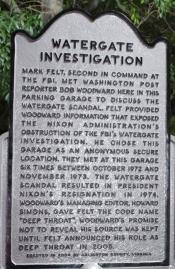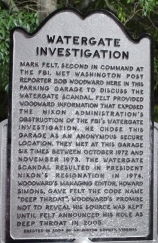Fifteen years ago next week, the Washington Post published the most sensational, electrifying, and thoroughly botched front-page story about the early Iraq War.
The Post’s reporting deserves to be recalled as a classic lesson about the perils and lasting effects of basing news accounts on the word of anonymous sources whose identities, motives, and presumed access to first-hand knowledge can only be guessed at by readers.

Lynch in 2003
The Post told how Pfc. Jessica Lynch, a 19-year-old Army supply clerk from West Virginia, had “fought fiercely and shot several enemy soldiers after Iraqi forces ambushed” elements of the Army’s 507th Maintenance Company on March 23, 2003.
Lynch shot at attacking Iraqis even though she suffered “multiple gunshot wounds” and saw “several other soldiers in her unit die around her,” the Post reported.
Lynch kept “firing her weapon until she ran out of ammunition” and was taken prisoner, the Post further declared in its article, which appeared April 3, 2003, beneath the headline:
“‘She was fighting to the death.'”
No one from the Post was with Lynch and her unit when it was ambushed in the southern Iraqi city of Nasiriyah. No Western journalists were there.
The Post reported the hero-warrior story from Washington; two veteran reporters, Susan Schmidt and Vernon Loeb, shared the byline. They based their breathless account about Lynch on the word of “U.S. officials,” whom they otherwise did not describe. They quoted one of the “officials” as memorably saying:
“She was fighting to the death. She did not want to be taken alive.”
Schmidt and Loeb’s account gave few other details about Lynch’s heroics. Even so, the story went viral: As I pointed out in my media-mythbusting book, Getting It Wrong, the hero-warrior story picked up by news organizations around the world.
For many of those outlets, the good name of the Washington Post was adequate authority.
U.S. cable news shows, as the New York Times noted, “ran with a report from The Washington Post that the 19-year-old P.O.W. had been shot and stabbed yet still kept firing at enemy soldiers.”
The New York Times also published a commentary by Melani McAlister, an American Studies scholar, who compared Lynch to Hannah Dunston and other long-ago American heroines.
A commentary in USA Today described Lynch as “the latest in a long line of women who prove their sex’s capacity for steely heroism.”
A columnist for the Hartford Courant quoted the historian Douglas Brinkley as likening Lynch to an “Annie Oakley of the high-tech world.” Lynch was, the columnist wrote, “the nation’s latest unlikely combat celebrity.”
Lynch, as it soon turned out, had been neither shot nor stabbed. She had not fired her weapon; it had jammed during the ambush.
She was badly injured attempting to flee the ambush in a Humvee. According to her biographer, Rick Bragg, she cowered in the back seat, praying, “Oh God help us. Oh God, get us out of here.”
The Humvee was struck by a rocket-propelled grenade and crashed, fatally injuring the driver and three other occupants. The impact shattered bones in Lynch’s body. She was unconscious when captured by the Iraqis and she lingered near death for nine days at an Iraqi hospital that doubled as a staging area for Iraqi irregular troops. On April 1, 2003, Lynch was rescued by U.S. special forces.
The Post’s erroneous reporting about Lynch’s derring-do was the subject of searching commentary by the newspaper’s then-ombudsman, Michael Getler, a straight-shooter who died this month at 82.
Getler criticized the Post’s reporting about Lynch while making clear the issue was “about journalism: about sources and reporters, motivation and manipulation, and finding the truth, as best we can, about a story that became the best known saga of the war” in its early days.
Getler was right. The botched report was, fundamentally, a cautionary lesson about journalists and unnamed sources — about the hazards of basing news reports on such sources.
The Post’s sourcing on the hero-warrior story about Lynch was opaque. It offered readers no explanation about who the “U.S. officials” were or where they worked. It gave readers no insight as to why the “U.S. officials” required or received the cloak of anonymity.
The sourcing was so vague that a pernicious assumption soon arose that the Pentagon had concocted the tale about Lynch’s heroism and fed it to the Post as a way to bolster public support for the war. That’s a false narrative, one the Post has done very little to counteract, beyond comments Loeb once made in a radio interview.
Loeb, who is now managing editor at the Houston Chronicle, went on NPR’s Fresh Air show program in December 2003 to say he “could never get anybody from the Pentagon to talk about” the Lynch case.
“They wouldn’t say anything about Jessica Lynch,” he said.
“I just didn’t see the Pentagon trying to create a hero where there was none,” Loeb added. “I mean …they never showed any interest in doing that, to me.”
He also said:
“Our sources for that story were not Pentagon sources.”
Loeb said the “U.S. officials” cited in the Lynch article were “some really good intelligence sources” in Washington, D.C., and added:
“We wrote a story that turned out to be wrong because intelligence information we were given was wrong. That happens quite often.”
As if that’s adequate reason to excuse or exonerate a news outlet that transmits bogus information on a major story.
The narrative that the Pentagon made it up has persisted. For example, London’s Independent newspaper recalled the Lynch case a few years ago and asserted that “the Pentagon exaggerated her story as it waged a propaganda war, stating that she had fought back heroically against the enemy when in fact she had never fired her weapon.”
(Lynch has long insisted she was no hero — although she has said she could have embraced the bogus hero-warrior tale and no one would’ve been the wiser.)
The Post’s opaque sourcing also gave rise to serious misidentification. The author Jon Krakauer declared in his 2009 book, Where Men With Glory, that a White House official named Jim Wilkinson had “arranged to give the Washington Post exclusive access” to the information about Lynch’s supposed heroism.
Wilkinson denied the unattributed claim and met with Krakauer who, in a subsequent paperback edition of the book, inserted a footnote containing an obscure retraction that said:
“Earlier editions of this book stated that it was Jim Wilkinson ‘who arranged to give the Washington Post exclusive access’ to this leaked intelligence [about Jessica Lynch]. This is incorrect. Wilkinson had nothing to do with the leak.”
The Post’s opaque sourcing also had the effect of diverting attention from a real hero of Nasiriyah — Sgt. Donald Walters.
Walters apparently did fight to the death, laying down covering fire as Lynch and her comrades tried to escape the ambush.
When his ammunition ran out, Walters was captured and executed by his captors soon afterward.
His heroism apparently was misattributed to Lynch, in a case of mistaken identity. In any event, Walters’ fate received little media attention. Unlike Jessica Lynch, Donald Walters never made the cover of popular magazines such as Newsweek, People, or Time.
Anonymous sourcing can have powerful and harmful effects, as the Lynch case shows. These effects still could be corrected should the Post summon the courage to identify the “U.S. officials” who led the newspaper astray on a sensational and memorable story 15 years ago.
To that point, Getler in a column in November 2003 quoted a reader as saying that considering the Post’s “starring role in perpetuating the myth” about Lynch and her battlefield heroics, its journalists “ought to have … done some top-notch, multi-story investigative reporting on who concocted this hoax and how they were able to hoodwink the public with it through the national media.
A fine suggestion. Even now, such reporting would make for great reading.
More from Media Myth Alert:
- The military’s fabrication? No, Jessica Lynch was WaPo’s story
- Why WaPo should reveal sources on bogus Jessica Lynch tale
- Women at the front: Recalling Jessica Lynch in Iraq
- Lynch blames ‘military, media’ for bogus hero story, ignores WaPo
- WaPo eludes responsibility in bogus hero-warrior tale about Lynch
- Jon Krakauer rolls back claims about WaPo ‘source’ in Lynch case
- Pentagon ‘caught creating false narrative’ about Lynch? How so?
- Lynch says she could’ve embraced Post’s phony hero story
- Misremembering the Jessica Lynch case, on Memorial Day
- ‘A debunker’s work is never done’
- The ‘Cronkite Moment,’ 50 years on: Remembering why it’s a media myth
- Recalling George Romney’s ‘brainwashing’ — and Gene McCarthy’s ‘light rinse’ retort
- Check out The 1995 Blog
- ‘Getting It Wrong’ receives major shout-out in ‘New Yorker’






















